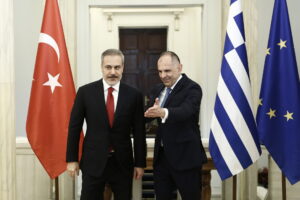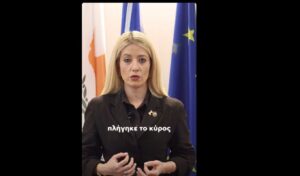As we approach the presentation and release of Alexis Tsipras‘ book, pre-publication excerpts are intensifying. The former Prime Minister has for the second time highlighted an extensive excerpt from his book referring to the 2015 referendum. He makes clear that it was his personal choice, which he describes as a one-way path, adding emotional elements to his description and emphasizing that this expressed the will of the citizens. He notes that through negotiations, better terms were achieved, which faced opposition from Schäuble at the time.
The former Prime Minister is making a high political risk move as he provokes the reflexes of two disparate audiences. Those who supported “Yes” and didn’t want either the referendum to happen or any risk to the country’s eurozone path, and those who voted “No” and wanted it implemented. However, although he knows he will “take political hits” for what he writes in his book, he seems to desire political catharsis and therefore opens up issues that divided people during his governance.
Mitsotakis on Tsipras’ return: “Would you board a ship whose captain has already crashed it on the rocks once?”
What’s interesting is that New Democracy is moving into this field to confront Alexis Tsipras. They estimate that 2015 is favorable ground for political confrontation because it reminds citizens of what they experienced then with closed banks. The government sees that the more Alexis Tsipras highlights the referendum through his book, the more centrist voters who don’t want Tsipras to have prospects of governing again will rally behind them. Kyriakos Mitsotakis, referring to Alexis Tsipras’ impending political return and essentially pointing to 2015, commented in an ERT interview: “Would you board a ship whose captain has already crashed it on the rocks once?”
In PASOK, where there’s division over whether they should dialogue with Tsipras’ party, Nikos Androulakis is closing the “doors.” The PASOK President, insisting on his party’s autonomous course, is already drawing dividing lines against the former Prime Minister’s upcoming political vehicle. They know at Charilaou Trikoupi that Alexis Tsipras’ references to 2015 provoke negative reflexes among centrist voters disappointed with the government. The last thing they would want is for these voters to rally behind the government again, ceasing to see PASOK as an alternative. For this exact reason, Nikos Androulakis, beyond closing scenarios for cooperation with Tsipras’ party, will certainly turn his fire on it once it’s established.
Tensions rise from his former comrades
Moreover, tensions will rise mainly from Alexis Tsipras’ former comrades, especially regarding what happened in the 2015 referendum. Zoe Konstantopoulou, Yanis Varoufakis, Panagiotis Lafazanis, Pavlos Polakis, and many others are on standby for what the former Prime Minister will say about them in his book. Given these circumstances, 2015 returns as a field of political confrontation for good in 2025.




